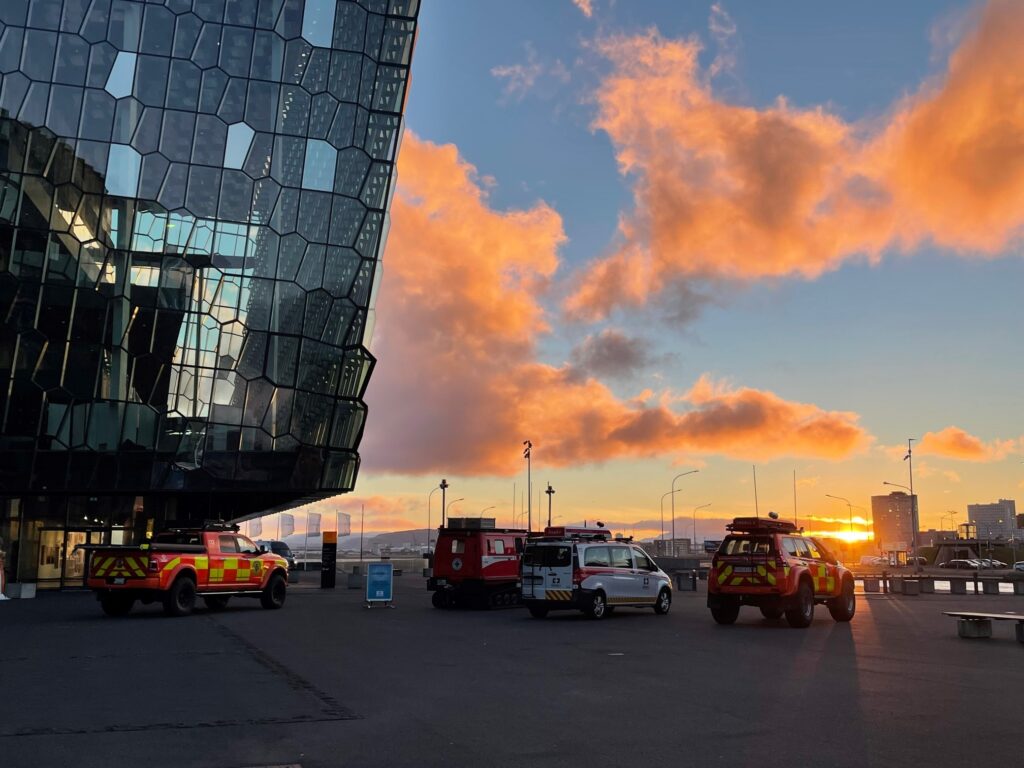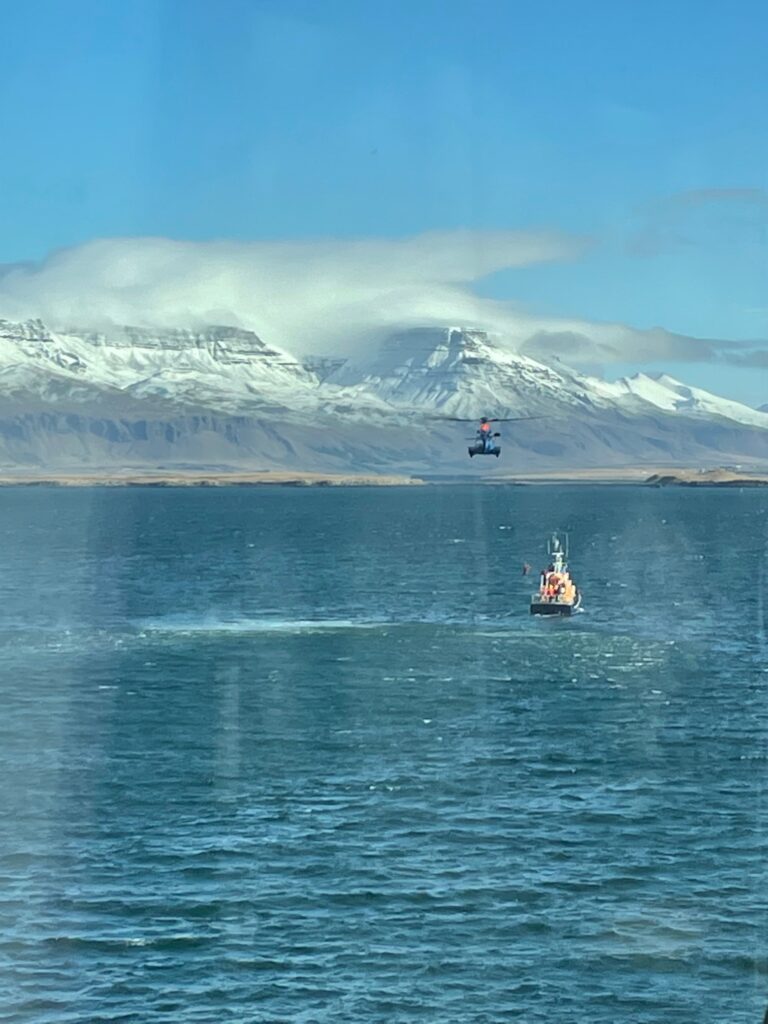
In October, I had the amazing opportunity to attend the Arctic Circle Assembly (ACA) in Reykjavik, Iceland along with Philip Shapiro, Interim Senior Vice President of Finance at UNE. This annual international meeting brings together participants from over 60 countries to discuss topics that impact the Arctic region, but also have an effect on the entire globe. These topics include: security in the Arctic region, climate change, a rapidly melting region and its impact on the entire globe, blue economy, and healthcare. Over 2000 participants, from all walks of life, attended the Assembly meeting. The rooms of the Harpa Concert Hall and Conference Center were alive with love, concern, passion, collaboration, and dialogue about the issues being presented by indigenous youth, business owners, heads of state, academics, marine scientists, government officials, and others. This meeting was the epitome of an interprofessional and interdisciplinary approach to discussing serious matters that truly impact us all.
The state of Maine had a large group that attended the meeting again this year. The attendance by over 25 Maine Delegates, as the group was referred to, demonstrated the strong connection that Maine has with the Arctic region. Dana Eidsness, from the Maine International Trade Center, coordinated multiple meetings and events between the Maine Delegate and key partners in Iceland (i.e., Ministry of Foreign Affairs, Iceland’s Foreign Minister, and the Iceland’s Ambassador to the US) and the US (US Ambassador to Iceland). Maine has strong connections to Iceland through their trade industry (i.e. Eimskip having Portland as a shipping port), businesses that share interests with Iceland (like the startup company, Everything Seaweed, exploring a location in Iceland with their home base in Maine), law and policy changers (Archipelago) that work in an interdisciplinary manner to make an impact in the North Atlantic and Arctic regions, the New England Ocean Cluster that strives to connect organizations to create value in the blue economy arena, and academics (like UNE through UNE North) that are making impacts through student education and faculty research that impacts the North Atlantic and Arctic regions.
UNE was involved in two presentations at the Assembly, demonstrating its commitment and passion around topics impacting the Arctic region. I presented with Holly Parker (Bowdoin College) and Steve Bell (Interactive Health Limited in Scotland) on the Inequity in Digital Health in Rural/Remote Areas. The panel presentation looked at inequities across health care education, policies impacting communities, and within the digital health industry that all have an impact on access to healthcare in rural communities. The robust discussion that followed the brief panel introductions demonstrated the impact this concern has across many regions and countries. The second presentation was made possible through a National Science Foundation grant that UNE is involved in. Four indigenous youth presented a video that was created when indigenous youth from New England and the Arctic region gathered in Maine to discuss sensitive and divisive issues with the goal of fostering peace and understanding. After viewing the video, the youth lead an impactful discussion circle that promoted open and honest dialogue among all the attendees.
The conference presented many opportunities to connect and have discussions with stakeholders across many counties and industries. The passion for issues that impact the Arctic was clear and the desire to make a change was seen in every session. The participants and presenters were from all walks of life, generations, stages of their career, and novice to experts when it come to their knowledge and understanding of the issues impacting the Arctic region. However, everyone had the same goal of making things better for the current and future generations. The two most prominent issues were geopolitical security in the region and climate change. When I think about how massive these two topics are, it feels overwhelming to think an impact can be made to improve either one. My takeaway about that is to think about some basic principles:
- Start small: There are amazing things happening in the Arctic that started as small projects. Starting small helps to ensure a project can be sustainable while also making an impact.
- Collaborate: We are strong as teams working on things. We should strive to work interprofessional/interdisciplinary, breaking down silos. We all have the same goal for planetary health and resilient communities and thus should work together to achieve these goals.
- Be Open to Change: Change is scary but good. Change also happens when we don’t expect it, so we need to be ready to pivot. Last year at the ACA, geopolitical unrest was not one of the most pressing issues. Now this issue impacts how countries, businesses, and communities function. The work in the Arctic region has changed, and in some instances halted, due to this change in hot topics. We need to respond to change and still strive to make a difference.
- Follow your passion: It is so evident how passionate each participant is about issues in the Arctic region. That passion is the driver of amazing research, education, work, collaboration, policy, and so much more. Follow those passions and make a difference!

Sally McCormack Tutt, D.P.T., M.P.H., Ed.D., is the interim Director of UNE North, Associate Dean for Academic Affairs in the Westbrook College for Health Professions, and Clinical Professor of Physical Therapy at the University of New England
